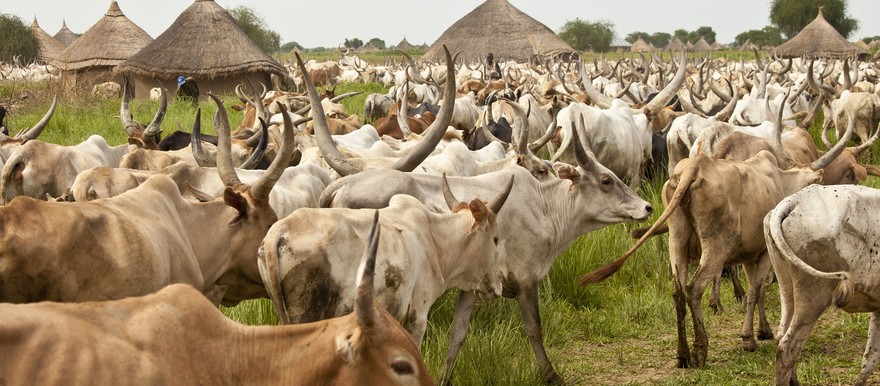The United Nations Food and Agriculture Organization (FAO) said it is focusing on improving the dairy farming sector in South Sudan by moving away from subsistence farming and introducing modern practices and technology.
The plan was disclosed on Tuesday by the FAO country representative, Meshack Malo, in the Western Bahar-el-Ghazal capital, Wau.
On Monday, a delegation from the livestock ministry, led by Minister Onyoti Adigo Nyikwec, along with FAO country representative Meshack Malo, arrived in the state to assess the state of dairy farming in the region.
In an interview with Radio Tamazuj, Meshack Malo, said his organization and partners are focusing on improving the breed of livestock to ensure that the country produces more milk and better quality beef across the county.
“The Food and Agriculture Organization, together with its partners are focusing on improving the breed of livestock to ensure that we can particularly produce more milk and beef,” FAO’s Malo said. “We are trying to improve milk production so that cities like Wau can be able to have better-improved production of milk.”
He said FAO has so far invested a lot in improving animal health and now it is time to move to the production step.
“So far we have invested a lot in making sure that the livestock is healthy, but now we are moving to the next step of ensuring that we have better production of milk,” Malo said.
He said they are embarking on crossbreeding and artificial insemination.
On his part, the national minister for Livestock, Onyoti Adigo, said their visit is also connected to seeing the national farm projects in the state.
“The main visit is mostly connected to sightseeing of the national projects including the Marial Bai. Marial Bai is a national project, I wanted to see it to know what is happening in it, who is managing it,” said Onyoti. “To see Marial Lou and Tonj in Warrap State. Because this Marial Lou is an institute that belongs to the ministry of livestock and fisheries. It is being innovated by FAO with aid from Japan. S we needed to go and see the progress of work.”




